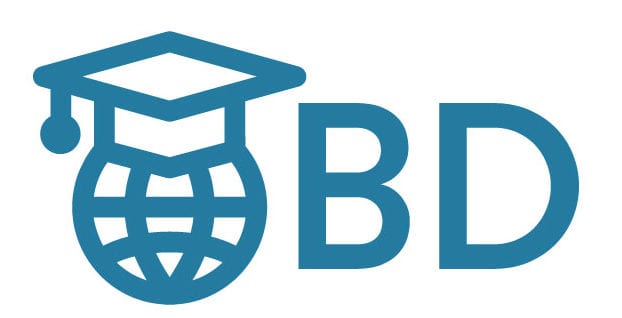An online Bachelor’s in Dietetics program exposes students to food management, medical nutrition, metabolism, and similar principles. It discusses topics that are essential to the discipline as well as the basic sciences of anatomy, biology, and physiology.
Nutrition and dietetics is the scientific study of balanced nutrient intake. It deals with food and diet and how either or both affect an individual’s overall health. All over the United States, requirements for admission to online Bachelor’s in Dietetics programs vary but typically, online students need to present SAT or ACT scores and a high school diploma.

Dietetics undergraduate degree holders and nutritionists generally have no trouble landing jobs or carving out their careers.
Many graduates become professional dietitians, licensed nutritionists, health educators, public health professionals, rehabilitation counselors, or food service managers.
The field of nutrition and dietetics is projected to grow increasingly, at 7% to be exact by 2032, according to the Bureau of Labor Statistics. The BLS also indicates that as of May 2022, dietitians and nutritionists received a median pay of $66,450 annually.
A Bachelor’s in Dietetics program offers students the opportunity to study the science of nutrition and its impact on human health. This degree prepares graduates to become registered dietitians, working in a variety of settings such as hospitals, community health centers, and food service companies.
Page Jumps!
- Best Online Schools for Bachelor’s in Dietetics
- Frequently Asked Questions
- What are the qualities that make a student a good fit for an online Bachelor in Dietetics program?
- What are some entry-level careers for holders of an online Bachelor’s degree in Dietetics?
- What are the highest salaries that holders of an online Bachelor’s degree in Dietetics can attain?
- What are the differences between Dieticians and Nutritionists?
Methodology
We put together a list of the Best Schools for Online Bachelor’s in Dietetics highlighting the colleges, universities, and academic institutions across the country that offer a dietetics online program. The top online schools on our profiled choices, listed in random order, provide a quality web-based education that makes earning this degree easier, more affordable, and even faster.
We zero in on each top school’s online Bachelor’s in Dietetics degree program highlighting features, such as the included coursework, quality of instruction, tuition rates, and duration of the degree program, as well as, other important factors as stated below:
- Each school is accredited by the Accreditation Council for Education in Nutrition and Dietetics (ACEND) proving that they meet educational standards according to nutrition and dietetics standards,
- Offers 100% Online programs and/or Hybrid Learning Formats, offering convenience and flexibility to the student,
- Focuses on the skills and knowledge needed for a professional career in nutrition and health science in the field of Dietetics; providing healthcare and wellness nutrition therapy to the public,
- Prepares students for positions as Clinical Dietitians, Food Service Managers, Community Dietitians for federally funded programs, or Sports Nutritionists, among others,
- Financial Aid opportunities,
- Provides dietetic internships when applicable,
- Easy to transfer credits into a graduate degree program.
*PLEASE NOTE: The below-listed programs may or may not prepare students for state licensing or certifications. Other factors, such as credentials and work experience may also be needed before you will be allowed to sit for any examinations. Please check your state’s requirements, as well as the program’s curriculum to determine if it will fit your needs before enrolling.
To learn more, please see our Methodology page.
Best Online Schools for Bachelor’s in Dietetics

Rutgers University-New Brunswick

Online Bachelor of Science (BS) in Nutrition and Dietetics
Rutgers University-New Brunswick offers a wide range of distance learning courses including a Bachelor of Science in Nutrition and Dietetics. This online program consists of 122 credits and may require students to have previously earned an associate degree in Dietetic Technician, Registered (DTR). This prepares them for public health nutrition education as they transition into becoming a Registered Dietitian Nutritionist.
The coursework features studies in:
- Experimental foods
- Biochemistry
- Advanced nutrition physiology
- A handful of practices that are supervised: pediatrics, obstetrics, diabetics, and food service administration
University of Arizona

Online Bachelor of Science in Nutritional Sciences (BS)
The University of Arizona offers an online Bachelor of Science in Nutritional Sciences consisting of subjects such as lifecycle nutrition, diet genes and disease, and sports nutrition. The course combines nutrition and dietetics with topics in food chemistry, cell biology to medicine. Students can choose between Nutrition or Dietetics as a field of concentration.
The University of Arizona is a Higher Learning Commission-accredited school that ranks 62nd among the country’s leading research institutions. It is a member of the Association of American Universities.
Arizona State University-ASU Online

Online Bachelor of Science in Nutrition Program
ASU Online offers a Bachelor of Science in Nutrition program that involves web-based, yet in-depth study of nutrition communication, food studies, and food and nutrition management. Classes also include healthy cuisine development, health and wellbeing, and social statistics.
ASU’s School of Nutrition and Health tops other institutions in the United States. It is accredited by the North Central Association of Colleges and Schools.
Texas Woman’s University

Online Bachelor of Science in Nutrition (Dietetics) Program
Accredited by the Commission on Colleges of the Southern Association of Colleges and Schools (SACSCOC), Texas Woman’s University is a top university for healthcare graduates in the state. The biggest university for women is known for its online Bachelor of Science in Nutrition (Dietetics) program that emphasizes nutritional sciences, dietetics, and wellness.
The curriculum, based on nutrition and dietetics subject matter, includes 120 credits and features coursework in subjects like nutrition and food science, microbiology, and health promotion (planning and design).
It also features 27 semester hours of health studies to prepare students for the Certified Health Education Specialist Exam. Notably, Texas Woman’s University holds the top rank in terms of RD passing rates at 95%.
Eastern Michigan University

Online Bachelor of Science Degree with a Focus on Theory and Practice
Eastern Michigan University, a highly-praised public university accredited by the National Committee on Accreditation, offers an online Bachelor of Science degree focusing on theory and practice under its Dietetics and Human Nutrition program. Applicants must have a cumulative 2.75 GPA and a prerequisite GPA of 3.0.
This course requires applicants to attend classes in:
- Microbiology
- Biochemistry
- Human Physiology
- Organic Chemistry
- Human Nutrition
Eastern’s online Bachelor’s in Dietetics program prepares graduates for careers in nutrition and dietetics. After completing 124 credits, students can take the Registered Dietitian (RD) examination. EMU is. Apart from providing quality online education, EMU offers an attractive scholarship to qualified students.
Kansas State University

Online Bachelor of Science in Nutrition and Health
Kansas State University offers a Bachelor of Science in Nutrition and Health in collaboration with the College of Human Ecology and the Global Campus. The course is composed of 120 units and teaches topics in:
- Wellness
- Food Science
- Nutrition
- Food Illness
- General Courses such as Human Ecology, Humanities, and Natural Sciences
K-State’s nutrition education program is regionally accredited by the Higher Learning Commission of the North Central Association of Colleges and Schools (NCA). Job opportunities for K-State graduates of B.S. in Nutrition Dietetics include sports nutritionist, private practitioner, and food service manager.
Purdue University Global

Online BS in Nutrition
Purdue University Global is an online Bachelor of Science in Nutrition school that prepares students by teaching them the basic concepts, research methods, and skills for careers in the healthcare and nutrition industries. Subject areas in the online program include:
- Healthy Living and
- Ethical and Administrative Training for Community Education
Purdue University Global’s online nutrition degree is accredited by the Higher Learning Commission.
University of Alabama

Online Bachelor of Science in Food and Nutrition
The University of Alabama, the oldest and largest in the state, offers a Bachelor of Science in Food and Nutrition program. It is accredited by the Academy of Nutrition and Dietetics. Online students learn about topics such as:
- Nutritional biochemistry
- Medical Nutrition Therapy
- Foodservice management
The UA is regionally accredited by SACSCOC. Students land jobs in public health settings, small hospitals, and private businesses upon graduation.
University of Alaska Anchorage

Online Bachelor of Science in Dietetics
The University of Alaska offers a reasonably priced annual net tuition for its online Dietetics program, including an online Bachelor of Science in Dietetics. It takes 120 credits to complete the program, where graduates can be eligible to take the RDN examination and then proceed to become community nutrition professionals to registered dietitian nutritionists.
Coursework samples for nutrition and dietetics include therapeutic nutrition, food science, and community nutrition. The UAA Dietetics program, which is nationally accredited by the Academy of Nutrition and Dietetics, provides ample internship programs for students to prepare them for real-world employment.
University of Northern Colorado

Bachelor of Science in Dietetics Online
Offering one of the most affordable health science degree programs the University of Colorado provides a Bachelor of Science in Dietetics. The online program adheres to the standards of the Academy of Nutrition and Dietetics with coursework that includes:
- Introduction to Food
- Advanced Nutrition
- Nutrition Applications in Foodservice
- Medical Nutrition Intervention
- Professional Development
Frequently Asked Questions
What are the qualities that make a student a good fit for an online Bachelor in Dietetics program?

A Bachelor’s in Dietetics student should be interested in research, as the degree focuses on foundational knowledge of the nutritional sciences.
Students who enjoy volunteering in health organizations, as well as adult learners who have educational or professional backgrounds in Dietetics as a field, are at an advantage.
What are some entry-level careers for holders of an online Bachelor’s degree in Dietetics?

Graduates with a Bachelor’s degree in Dietetics dive into career opportunities to help others live a healthy lifestyle.
Jobs can be found in various sectors such as Business and Industry, Consultant/Private Practice, Clinical Dietetics, Education and Research, Food and Nutrition Management, International Food Organizations, the Media, Community Health Sector, Wellness Centers, Public Health Nutrition, and Public Policy/Government.
What are the highest salaries that holders of an online Bachelor’s degree in Dietetics can attain?

The median salary of dietitians is $66,450 yearly or $31.95 an hour according to May 2022 data from the Bureau of Labor Statistics (BLS). The highest 10 percent earned upwards of $95,130 annually.
The top industry utilizing nutritionists and dietitians was found in outpatient care centers; followed by hospitals, government agencies, and nursing home facilities.
What are the differences between Dieticians and Nutritionists?
Dieticians and nutritionists are both experts in food and nutrition, but there are some critical differences between the two professions:
Education and training: In most countries, dieticians are required to have a degree in nutrition or a related field, with a focus on clinical training and hands-on experience. In addition, they must complete a supervised internship and pass a national exam to become a registered dietician.
Nutritionists, on the other hand, may have a degree or certification in nutrition or a related field, but they are not required to have specific clinical training or internships. The level of education and training for nutritionists can vary greatly, so it’s important to research their qualifications before seeking their services.
Scope of practice: The scope of practice for dieticians is often more regulated than that of nutritionists. Dieticians are typically licensed or registered by a state or national governing body and have specific guidelines for their practice. This means they can provide medical nutrition therapy and work in clinical settings, such as hospitals or medical clinics.
Nutritionists, on the other hand, may have a wider range of practice and can work in various settings, such as schools, community organizations, and research facilities. However, they are not typically licensed or regulated by a governing body.
Focus and approach: Dieticians often have a more medical or clinical approach to nutrition, working closely with healthcare providers and using evidence-based practices to assess and treat medical conditions related to nutrition. Their focus may be on disease management and prevention, as well as overall health and wellness.
Nutritionists may have a more holistic approach to nutrition, taking into account factors such as lifestyle, emotional well-being, and environmental influences on dietary choices. They may work with clients to develop personalized nutrition plans tailored to their specific needs and goals.
Insurance coverage: Dietician services are more likely to be covered by insurance, as they are considered medical services. This is especially true if the dietician is working in a clinical setting and providing medical nutrition therapy. Nutritionists, on the other hand, may not be covered by insurance and clients would need to pay for their services out-of-pocket.
In summary, while both dieticians and nutritionists have expertise in food and nutrition, the main differences lie in their education, scope of practice, focus, and insurance coverage. Both can play important roles in helping individuals achieve and maintain a healthy lifestyle, but it’s important to understand their distinct qualifications and approaches before seeking their services.
Additional Information:
Additional Information:
